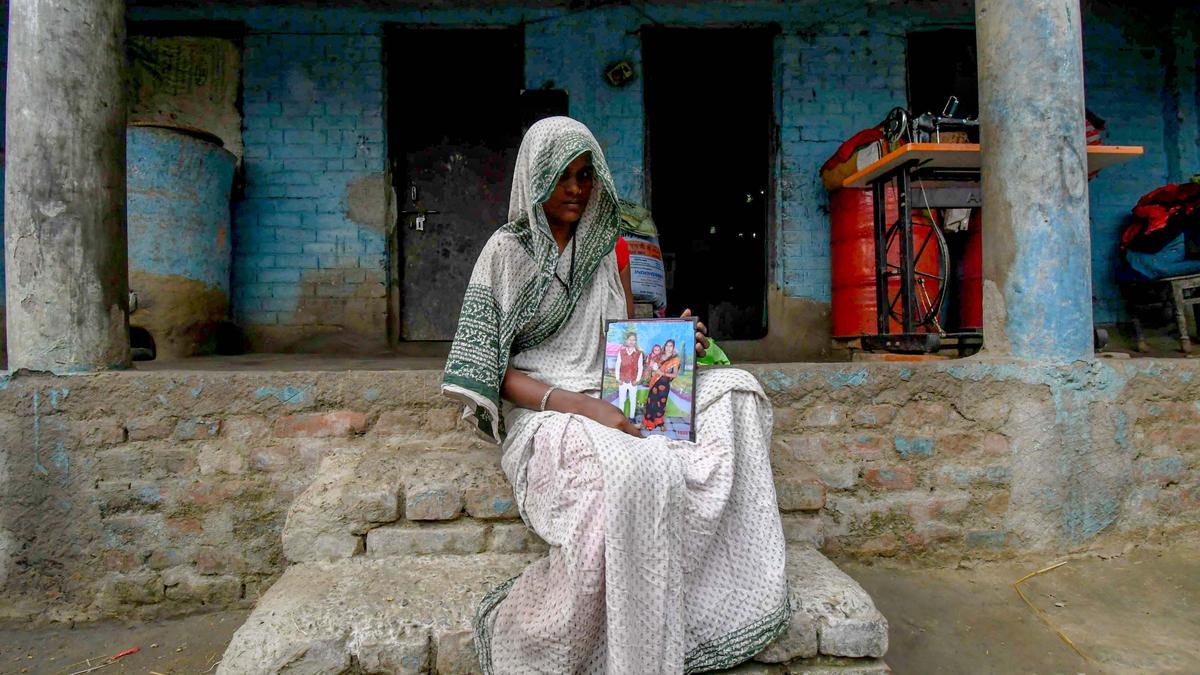
Weddings, guns, funerals: Celebratory firings continue to kill in north India Premium
The Hindu
Despite being a punishable offence, the practice of celebratory firings at weddings and parties continues to thrive in parts of north India, claiming lives and injuring scores of people.
It was past midnight on May 19 when Ankush Yadav, 13, left home to attend tilak, a male-dominated ceremony held at the groom’s house before a wedding. The event was being conducted just 200 metres from Ankush’s house in Thallu Bigha village in Ghoshi block of Jehanabad district, Bihar. While red vermillion was applied on the foreheads of the men, the women who had been called to entertain the 500-odd guests began dancing on stage.
As Bhojpuri music blared on, alochol flowed freely, and the tent throbbed with life, Ankush went up on stage. Minutes later, deafening sounds rang through the night and Ankush, a student of Class 7, suddenly dropped to the floor. A man called Priyanshu Kumar had fired a shot from a country-made gun and the bullet had hit Ankush’s stomach, say the police.
Recalling the events of that tragic night, 35-year-old Kusum Devi, Ankush’s mother, says a villager rushed to their house and informed them of the incident. When she ran to the spot, the place was pitch dark and quiet. The tent where the performers and guests in sparkly clothes were dancing energetically just moments ago was deserted.
“I walked 100 meters and saw a black Marshal car,” Kusum says. “I asked the people standing near it about my son. Initially they said that they didn’t know anything, but I could hear his voice. He was in pain.”
When Kusum peered into the car, she saw Ankush lying on the back seat in a pool of blood. The villagers told her that he had suffered a small injury and that they were taking him to the hospital. “They did not allow me to touch my son,” she says. “They drove away. I waited, but they didn’t return.” After two hours, the police reached the spot. They informed her that Ankush was dead and that his body had been sent for postmortem.
The practice of celebratory firings, where men fire shots in the air at weddings and birthday parties, is common in north India, especially in Bihar, Punjab, Haryana, and Uttar Pradesh. Though a punishable offence inviting imprisonment of up to two years, a fine of ₹1 lakh, or both, the dangerous practice continues to thrive, claiming lives and injuring scores of people. According to police data, celebratory firings in Bihar claimed 19 lives just between January and November this year, besides leaving over 35 injured. The maximum number of cases were reported in the Shahabad region, which includes the Bhojpur, Rohtas, and Kaimur districts. In 2022, 99 incidents of celebratory firings claimed eight lives and left 36 injured. But official figures seldom include incidents which take place in rural areas, which are never reported unless the video footage goes viral.
Kusum’s biggest regret is that Ankush was not treated on time. She says he was alive for an hour after he was hit by the bullet, but died because he was not taken to the nearest hospital, 20 kilometres from the village.

The event will run daily from 10 a.m. to 8.30 p.m., offering a variety of activities. Visitors can enjoy dance and music performances, hands-on art experiences, film screenings, and exhibitions from 10.30 a.m. to 6.30 p.m. These will feature folk cuisines, leather puppets, philately, textiles, and handicrafts.

















